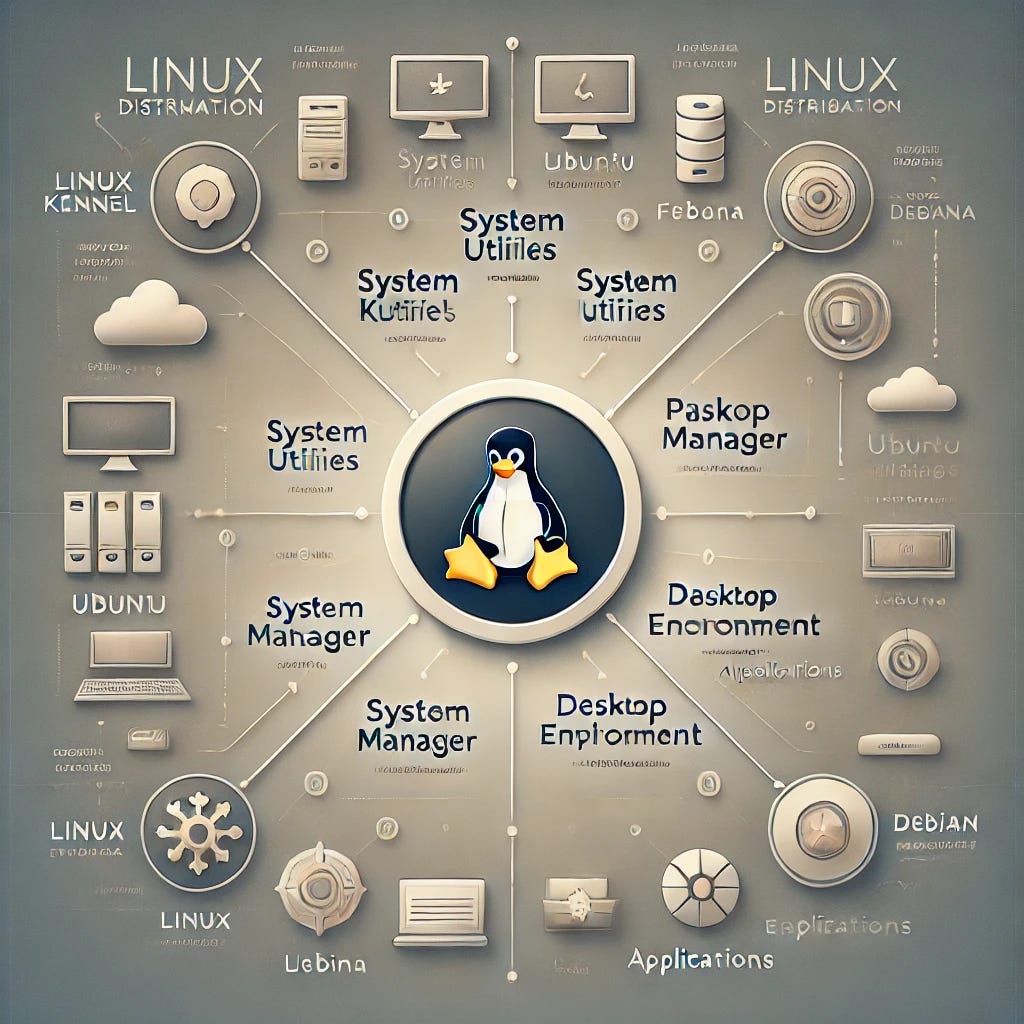Understanding Linux Distributions: The Complete Operating System
When we talk about Linux, we often hear the term "distribution" or "distro." But what exactly is a Linux distribution, and how does it differ from just the Linux kernel? Let’s explore.
What is a Linux Distribution?
A Linux distribution is a complete operating system built around the Linux kernel. While the kernel itself is the core component responsible for managing hardware and system resources, a distribution packages the kernel with everything else needed to create a fully functional operating system.
A Linux distribution typically includes:
The Linux Kernel: The foundation that manages hardware resources and facilitates communication between hardware and software.
System Utilities: Essential tools like
bash,ls, andcpthat let you interact with and manage the system.Package Management Tools: Tools like
apt(Debian-based distros) ordnf(Fedora-based distros) that allow users to install, update, and manage software.Applications: Pre-installed software like browsers, media players, and text editors.
Configuration Files: Files that control system behavior and allow customization.
Desktop Environments (Optional): Graphical interfaces like GNOME, KDE, or XFCE for user-friendly interaction.
Together, these components transform the Linux kernel into a practical and versatile operating system.
Is a Distribution the Same as an Operating System?
Yes, a Linux distribution is an operating system. While the Linux kernel is the essential core, it’s not usable on its own. A distribution packages the kernel with additional software and tools to create a fully functional system.
Why Are There So Many Distributions?
One of Linux’s greatest strengths is its adaptability. Different distributions are tailored to specific needs, providing users with options that suit their preferences and use cases. For example:
Desktop Use: Ubuntu, Linux Mint, Fedora.
Server Use: CentOS, Debian, RHEL.
Specialized Purposes: Kali Linux (penetration testing), OpenWrt (network routers).
Minimalist or DIY: Arch Linux, Gentoo.
Each distribution is unique, offering varying levels of customization, support, and pre-installed software.



